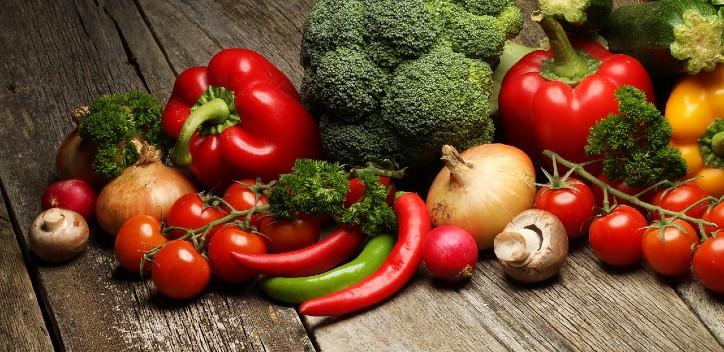Vegan Diet Facts from a Nutritionist
Jan 9, 2025Explore the essential vegan diet facts from a nutritionist's perspective. Learn about the different types of vegan diets, nutritional considerations, benefits, and tips for planning a balanced vegan meal plan.
Thinking about adopting a vegan lifestyle? It’s a significant decision that can impact your health, ethics, and even your environmental footprint. But before you take the plunge, it’s essential to understand the vegan diet facts from nutritionist perspectives. This article will guide you through the key aspects of a vegan diet, ensuring you’re well-informed and ready to make the best choices for your health.
Understanding the Vegan Diet
A vegan diet is a plant-based eating pattern that excludes all animal products and byproducts. This means avoiding not only meat, poultry, and fish, but also dairy, eggs, honey, and gelatin. The reasons for choosing veganism are varied, ranging from health concerns and ethical considerations to environmental awareness. It's more than just a diet; for many, it's a lifestyle.
Vegan vs. Vegetarian: What’s the Difference?
It’s easy to confuse veganism with vegetarianism, but there are key differences. While vegetarians also avoid meat, they may still consume animal byproducts like dairy and eggs. Vegans, on the other hand, abstain from all animal products, including those produced by animals. This distinction is crucial for understanding the nuances of a plant-based lifestyle.
Types of Vegan Diets
There's no single way to be vegan. Dietary choices often reflect personal goals, be they weight loss, athletic performance, or overall well-being. Here are a few common variations:
- Raw Vegan: This diet focuses on uncooked plant foods, believing cooking diminishes nutritional value. While rich in fruits and vegetables, it can be challenging to obtain all necessary nutrients.
- Vegan Keto: This high-fat, low-carb approach adapts the keto diet for vegans, relying on avocados, nuts, and oils while restricting grains and legumes. It’s a restrictive diet that requires careful planning.
- Vegan Diabetic: Designed to manage blood sugar, this diet emphasizes fiber-rich whole grains, beans, and legumes, combined with protein and healthy fats.
- High-Protein Vegan: This diet prioritizes plant-based protein sources such as nuts, seeds, beans, tofu, and quinoa, often used by athletes and bodybuilders.
- Alkaline Vegan: This diet focuses on foods with a high pH, such as fruits, non-starchy vegetables, and whole grains, while avoiding what it considers acidic foods like lentils and soy.
- Vegan Anti-inflammatory: This emphasizes whole foods and limits processed items, sugars, and unhealthy fats, which may contribute to inflammation.
- Mediterranean Vegan: This diet, inspired by the traditional Mediterranean diet, emphasizes fruits, vegetables, whole grains, beans, nuts, seeds, and healthy unsaturated oils, but excludes animal products.
- Low-Carb Vegan: This approach focuses on non-starchy vegetables, high-fat fruits, and low-sugar fruits, alongside nuts and seeds, while limiting grains and legumes.
Nutritional Considerations for Vegans
Adopting a vegan diet, while beneficial, requires careful planning to ensure you're getting all the nutrients your body needs. Here's a breakdown of key nutrients to focus on:
Protein
Protein is essential for building and repairing tissues. While meat is often seen as the primary source of protein, it’s readily available in a variety of plant-based foods. These include:
- Legumes (lentils, chickpeas, beans)
- Tofu and tempeh
- Nuts and seeds
- Quinoa
- Oats
- Nutritional yeast
- Soy-based products
 Credit: plantbasednews.org
Credit: plantbasednews.org
To ensure you get all the essential amino acids, eat a variety of these plant-based protein sources throughout the day.
Iron
Iron is crucial for red blood cell production. Plant-based iron is not as easily absorbed as animal-based iron, so vegans need to be strategic. Good sources include:
- Lentils and beans
- Tofu
- Dark leafy greens
- Fortified cereals
- Nuts and seeds
- Rice and pasta
To enhance iron absorption, combine these foods with vitamin C-rich options like citrus fruits, strawberries, and bell peppers.
Vitamin B12
Vitamin B12 is essential for nerve function and red blood cell formation. It's primarily found in animal products, making it a critical nutrient for vegans to consider. Reliable vegan sources include:
- Fortified foods, such as plant milks, soy products, and breakfast cereals
- Nutritional yeast
- B12 supplements
It’s often recommended that vegans supplement with B12, as it's not reliably present in plant-based foods.
Vitamin D
Vitamin D is needed for calcium absorption and bone health. Our bodies produce it when exposed to sunlight, but vegans can get it from:
- Fortified foods (plant-based milks, cereals, bread)
- Mushrooms
- Vitamin D supplements
Especially during winter months or in regions with limited sunlight, a vitamin D supplement is often recommended.
Calcium
Calcium is essential for strong bones and teeth. Plant-based sources include:
- Calcium-fortified plant milks and juices
- Tofu (processed with calcium)
- Dark leafy greens
- Almonds and sesame seeds
Omega-3 Fatty Acids
Omega-3s are vital for heart health and brain function. Plant-based sources include:
- Flaxseeds
- Chia seeds
- Walnuts
- Hemp seeds
- Algae-based supplements
Due to the body's inefficient conversion of ALA to EPA and DHA, some vegans may benefit from an algae-based supplement.
Zinc
Zinc is important for immune function. Good vegan sources include:
- Chickpeas and lentils
- Tofu
- Pumpkin seeds
- Cashews
Absorption from plant foods can be limited, so including a variety of these in your diet is key.
Iodine
Iodine supports thyroid function. Plant sources can be variable based on soil content. Include:
- Seaweed (in moderation)
- Iodized salt (if used)
- Iodine supplements (if needed)
Benefits of a Vegan Diet
A well-planned vegan diet can offer many health advantages. Studies show that plant-based diets may lead to:
-
Healthier weight: Plant foods tend to be lower in calories and higher in fiber, aiding weight management.
-
Lower risk of chronic diseases: Vegan diets may reduce the risk of heart disease, type 2 diabetes, and certain cancers.
-
Improved cardiovascular health: Plant-based diets are often lower in saturated fats and cholesterol, promoting heart health.
-
Lower cholesterol and blood pressure: These diets are naturally low in cholesterol and can help lower blood pressure.
-
Improved gut health: Whole plant foods, rich in fiber, support healthy gut bacteria.
-
Reduced inflammation: Plant-based diets can reduce inflammation linked to chronic diseases.
 Credit: vegansociety.com
Credit: vegansociety.com
Planning a Balanced Vegan Diet
Transitioning to a vegan diet doesn’t have to be complicated. Here are some tips from a nutritionist to help you get started:
- Start Gradually: Introduce changes one step at a time, rather than making a sudden switch. For example, cut out red meat first, then poultry, then dairy, and so on.
- Focus on Whole Foods: Base your meals around whole, unprocessed plant foods rather than relying on highly processed vegan alternatives.
- Variety is Key: Eat a wide range of fruits, vegetables, legumes, nuts, seeds, and whole grains to ensure you get all the necessary nutrients.
- Prioritize Protein: Include a good source of plant-based protein with every meal.
- Replace as You Remove: For every animal product you eliminate, find a plant-based replacement to ensure you’re meeting your nutrient needs.
- Plan Your Meals: Prepare meals ahead of time to ensure you have healthy options available, especially if you have a busy lifestyle.
- Supplement Wisely: Consider a vitamin B12 supplement, and possibly vitamin D and omega-3 supplements.
- Read Labels Carefully: Be mindful of added sugars, saturated fats, and processed ingredients in packaged vegan foods.
- Stay Hydrated: Drink plenty of water throughout the day.
- Consult Professionals: If you have concerns about nutrient deficiencies or specific health needs, speak with a doctor or a registered dietitian specializing in plant-based diets.
Sample Vegan Meal Plan
Here's a sample meal plan to illustrate a balanced vegan diet:
- Breakfast: Oatmeal with berries, nuts, and seeds. Or a tofu scramble with sautéed mushrooms.
- Lunch: A hearty salad with chickpeas, avocado, and a variety of vegetables. Or a lentil soup with whole-grain bread.
- Dinner: A veggie stir-fry with tofu and brown rice. Or a vegan black bean burger with sweet potato fries.
- Snacks: Hummus and veggies, a handful of nuts, or a fruit smoothie.
Key Takeaway
A vegan diet can be a healthy and ethical choice, but it requires careful planning and a commitment to eating a variety of whole, plant-based foods. By understanding your nutritional needs and making informed choices, you can thrive on a vegan diet and reap its many benefits. Remember to consult with healthcare professionals when making significant dietary changes, especially if you have existing health concerns or are pregnant. The vegan diet facts from nutritionist perspectives consistently highlight the importance of balance, variety, and informed decision-making.
Jan 21, 2025
Explore the pros and cons of a plant-based diet, including health benefits, potential challenges, and tips for successful implementation. Learn about vegetarian, vegan, and flexitarian approaches.
Jan 20, 2025
Explore the latest research on plant-based diets and their powerful health benefits, including disease prevention, heart health, diabetes management, and cancer risk reduction.
Jan 16, 2025
Explore the nutritional landscape of processed fake meat, comparing them to traditional meat and whole plant foods. Learn about ingredients, health impacts, and making informed choices.